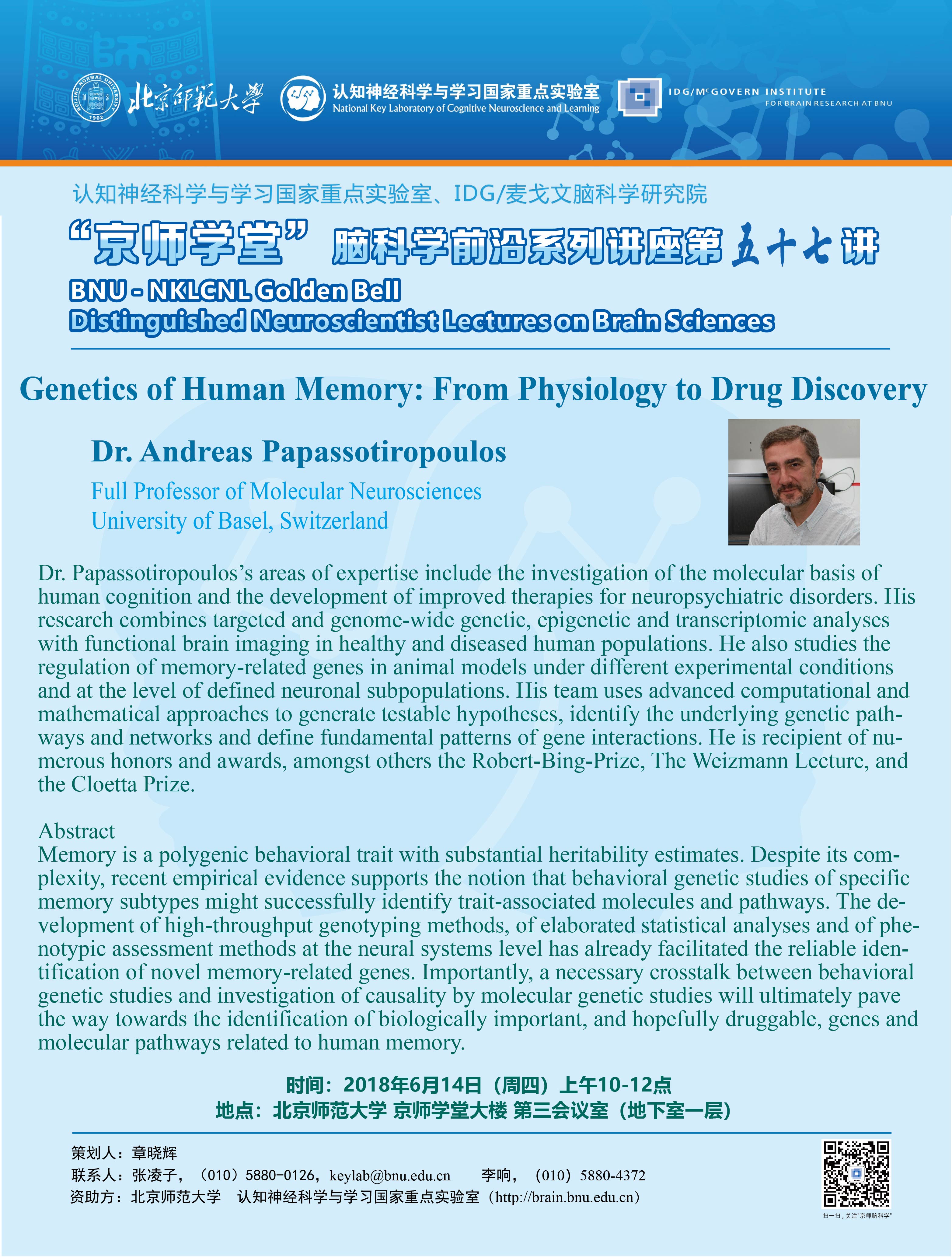Genetics of Human Memory: From Physiology to Drug Discovery
Dr. Andreas Papassotiropoulos
Full Professor of Molecular Neurosciences, University of Basel, Switzerland.
Dr. Papassotiropoulos’s areas of expertise include the investigation of the molecular basis of human cognition and the development of improved therapies for neuropsychiatric disorders. His research combines targeted and genome-wide genetic, epigenetic and transcriptomic analyses with functional brain imaging in healthy and diseased human populations. He also studies the regulation of memory-related genes in animal models under different experimental conditions and at the level of defined neuronal subpopulations. His team uses advanced computational and mathematical approaches to generate testable hypotheses, identify the underlying genetic pathways and networks and define fundamental patterns of gene interactions. He is recipient of numerous honors and awards, amongst others the Robert-Bing-Prize, The Weizmann Lecture, and the Cloetta Prize.
Abstract: Memory is a polygenic behavioral trait with substantial heritability estimates. Despite its complexity, recent empirical evidence supports the notion that behavioral genetic studies of specific memory subtypes might successfully identify trait-associated molecules and pathways. The development of high-throughput genotyping methods, of elaborated statistical analyses and of phenotypic assessment methods at the neural systems level has already facilitated the reliable identification of novel memory-related genes. Importantly, a necessary crosstalk between behavioral genetic studies and investigation of causality by molecular genetic studies will ultimately pave the way towards the identification of biologically important, and hopefully druggable, genes and molecular pathways related to human memory.
时间:2018年6月14日(周四)上午10-12时
地点:北京师范大学京师学堂大楼第三会议室(地下一层)
